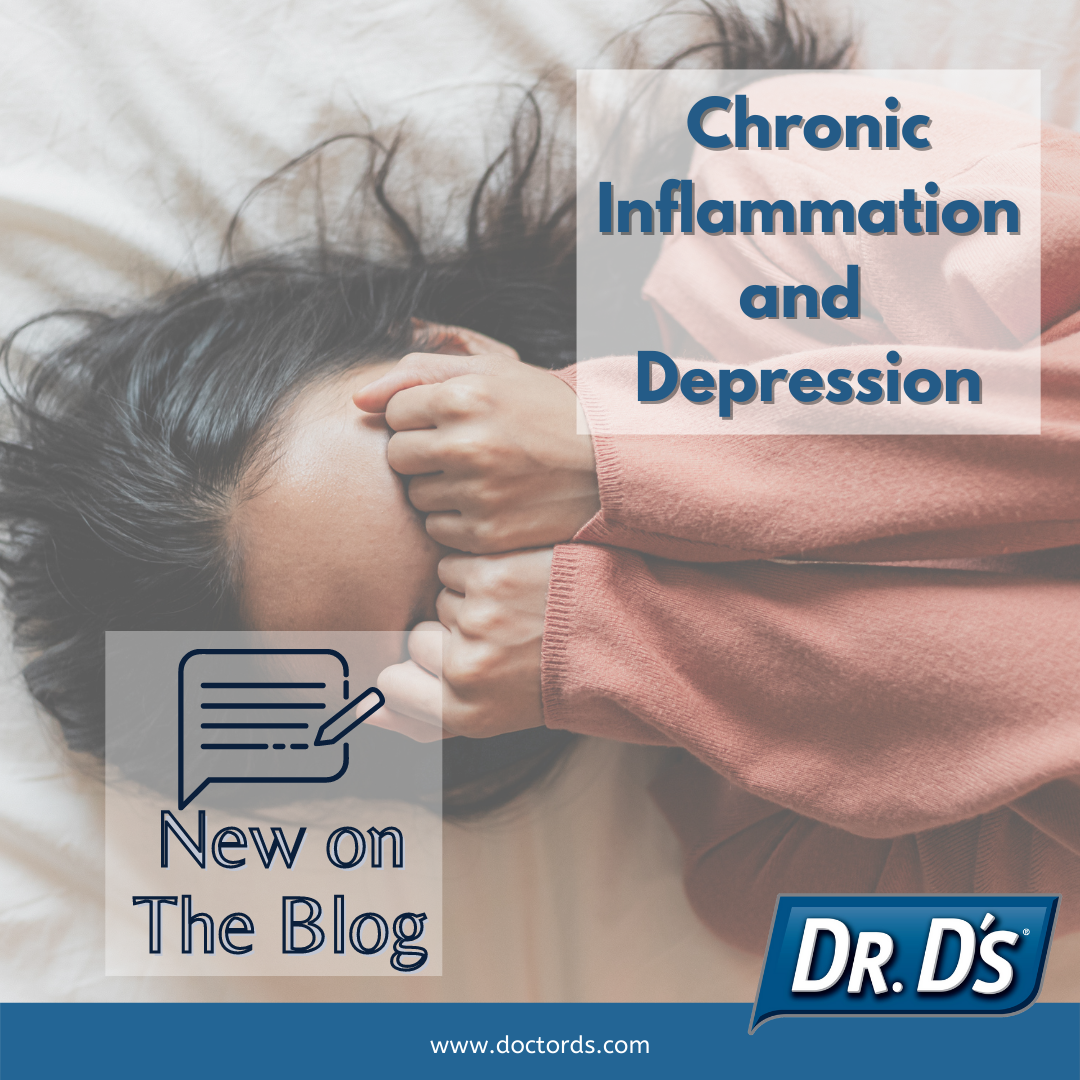
Chronic Inflammation and Depression
Share
The Centre for Addiction and Mental Health (CAMH) states that 'in any given year, 1 in 5 people in Canada will personally have a mental health problem or illness. By age 40, about 50% of the population will have or have had a mental illness.' In 2017, an estimated 17.3 million adults in the United States had at least one major depressive episode. These alarming numbers do not include those who may be experiencing mental health concerns but do not seek medical attention.
If you think you are experiencing depression or any mental health concerns, take a moment to ask yourself if you are experiencing any other physical symptoms, particularly digestive issues such as gas, bloating or abdominal pain? Your gut health dictates your overall health, so it was not surprising for me to learn about the connection between gut health and mental health.
When inflammatory proteins signal your brain that something is wrong in your digestive track, this can affect your overall mood. Dr. Adrian Lopresti, who is a clinical psychologist and researcher and Murdoch University explains this very well, stating that patients with depression have greater inflammation and oxidative stress, which can affect all major organs in the body, including the brain. In fact, a study found that patients with major depression had elevated levels of inflammatory biomarkers in their blood, indicating that they also silently suffered from chronic inflammation. Preliminary data from that study stated that hindering inflammatory signals to the brain may improve depressed mood and increase response to anti-depressant medication. Moreover, meta-analyses of the literature also conclude blood biomarkers of inflammation in patients with depression. Even non-depressed individuals express symptoms of depression when administered inflammatory proteins. As research advances, it has become apparent that inflammatory markers may also be elevated in patients with other neuropsychiatric disorders including anxiety disorders and schizophrenia. Allow me to explain this a little further…
Inflammation also affects hormones and other neurotransmitters in your brain such as Serotonin. Serotonin contributes to wellbeing and happiness. As the precursor for melatonin, it helps regulate the body's sleep-wake cycles and the internal clock. It is thought to play a role in appetite, emotions, motor, cognitive, and autonomic functions. Inflammation drives down the level of serotonin, which can lead to feelings of depression or anxiety, and problems with memory. It prevents melatonin from being produced, which causes insomnia. It causes dopamine levels to rise, which contributes to insomnia, and feelings of anxiety and agitation. Dr. Roger S. McIntyre, Professor of Psychiatry and Pharmacology at the University of Toronto asserted that “curcumin does have an effect on several physiological systems that are implicated in the causes of depression”. Curcumin is one of the most anti-inflammatory components of turmeric. In recent years, several randomized controlled trials have found turmeric to be effective in the treatment of major depressive disorder, likely due to its ability to reduce inflammation in the gut and brain.
Turmeric is one of nature's most powerful anti-inflammatory, although in raw form it is difficult to absorb. This is why taking turmeric in supplement form with a high absorption technology is recommended. Dr. D's Ultra BioTurmeric's groundbreaking technology involves an advanced extraction process which results in an all-natural, full spectrum turmeric supplement which remains in the bloodstream for up to 24 hours and exhibits 14 times greater absorption (compared to standard curcumin)! Unleashing Turmeric’s Full Medicinal Potential!
If you or someone you know is experiencing depression and you are worried about their safety, call Toronto Distress Centres at 416 408-4357 or 408-HELP or Kids Help Phone at 1 800 668-6868, or call 9-1-1 if you suspect immediate danger. Visit www.camh.ca for further resources on where and how to get help.
1.CAMH. Mental Illness and Addiction Facts and Statistics. https://www.camh.ca/en/driving-change/the-crisis-is-real/mental-health-statistics
2. PSYCOM. What is Depression? https://www.psycom.net/depression.central.html
*THE CONTENT IN THESE BLOGS IS STRICTLY EDUCATIONAL AND NOT INTENDED TO BE A SUBSTITUTE FOR PROFESSIONAL MEDICAL ADVICE, DIAGNOSIS, OR TREATMENT. ALWAYS SEEK THE ADVICE OF YOUR PHYSICIAN OR OTHER QUALIFIED HEALTHCARE PROVIDER WITH ANY QUESTIONS YOU MAY HAVE REGARDING A MEDICAL CONDITION OR YOUR GENERAL HEALTH. ALWAYS THOROUGHLY READ AND FOLLOW INSTRUCTIONS ON THE LABELS OF YOUR SUPPLEMENTS AND/OR MEDICATIONS. NOTE THAT THE CONTENT IN THESE BLOGS MAY BECOME OUTDATED AS NEWER RESEARCH IS PUBLISHED.